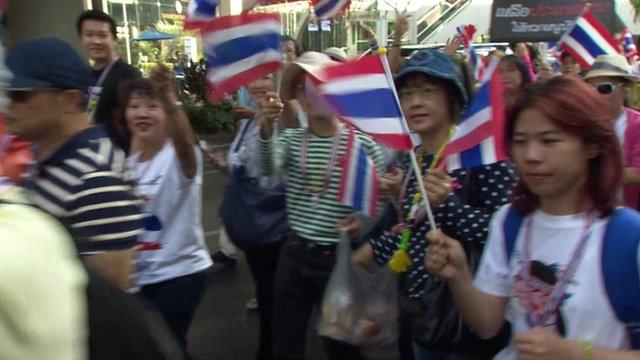Thailand protests: PM Yingluck rejects resignation call
- Published
Yingluck Shinawatra makes a tearful plea tearful plea to anti-government protesters
Thai Prime Minister Yingluck Shinawatra has rejected protesters' demands that she resign before February's snap elections.
Demonstrators have been calling for Yingluck Shinawatra to resign and be replaced with a "people's prime minister".
Ms Yingluck won the last polls in 2011, but protesters say ex-leader Thaksin Shinawatra remains in charge.
Thailand is facing its most serious political turmoil since 2010.
Speaking to reporters on Tuesday, Ms Yingluck urged protesters to stop and "use the electoral system to choose who will become the next government."
"I must do my duty as caretaker prime minister according to the constitution," she said, adding: "I have retreated as far as I can - give me some fairness."
On Monday, around 150,000 protesters had converged around the government headquarters in what they had described as a final push to unseat the government.
On the same day, Ms Yingluck announced that she would dissolve parliament and call elections, now set for 2 February.
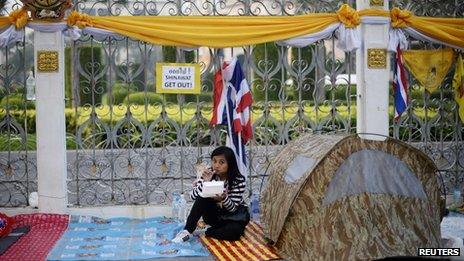
A small number of protesters remain camped outside Government House
However, protest leader Suthep Thaugsuban, a former opposition politician, said that the demonstrations would continue.
"We will select a people's prime minister and set up a government of the people and a people's assembly to replace parliament," he said late on Monday.
'Polarising politician'
On Tuesday the streets were quiet and the number of protesters had diminished significantly.
However, a small core of protesters remained outside government buildings, correspondents said.
Ms Yingluck's Pheu Thai party has a majority in parliament, and draws significant support from Thailand's rural areas. The party is seen as well-placed to win February's election.
Anti-government protesters say Ms Yingluck's party is controlled by ousted leader Mr Thaksin, who is also Ms Yingluck's brother.
They accuse it of using public funds irresponsibly to secure votes and want her government to be replaced with an unelected "People's Council".
Mr Thaksin, a polarising politician, is in self-imposed exile after he was overthrown in a military army coup in 2006 and convicted of corruption.
There were no reports of violence at Monday's protest. However, violent clashes broke out during last week's demonstrations, with five people killed.
More than 90 people died during the political turmoil of 2010, when thousands of supporters of Mr Thaksin occupied parts of Bangkok. They were eventually cleared by the army.
In a statement late on Monday, the US state department said it "strongly supports" Thailand's "democratic process".
"We encourage all involved to resolve political differences peacefully and democratically in a way that reflects the will of the Thai people and strengthens the rule of law," the statement said.
- Published22 May 2014
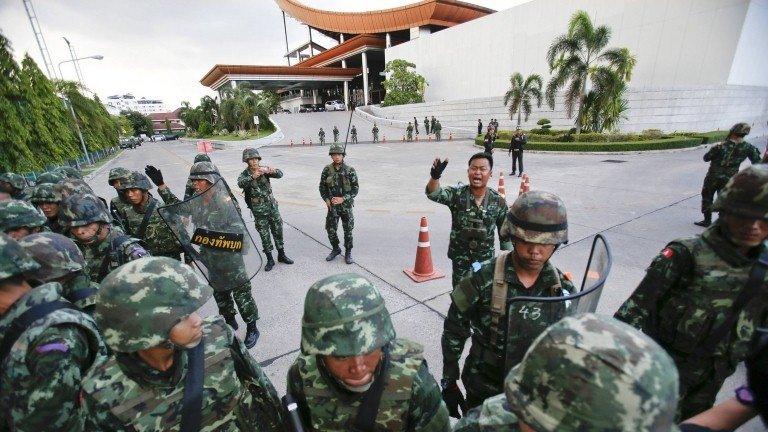
- Published9 December 2013
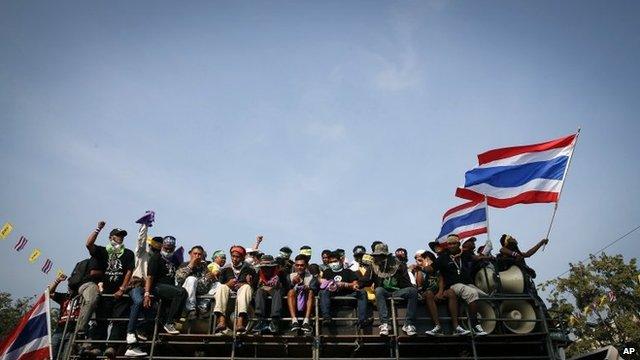
- Published9 December 2013
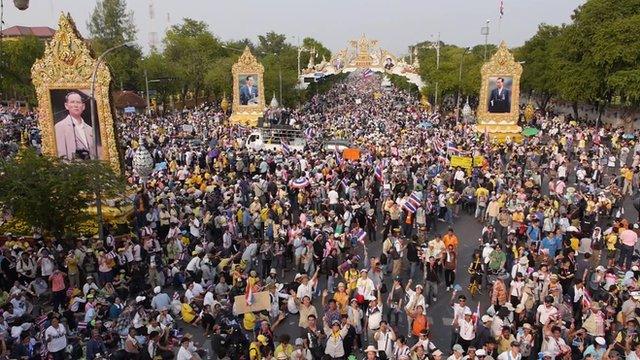
- Published9 December 2013
